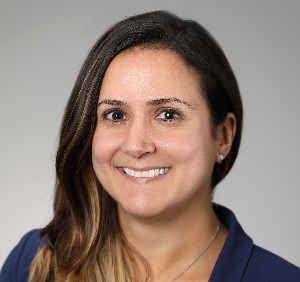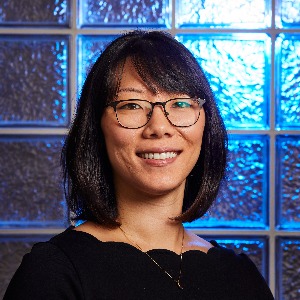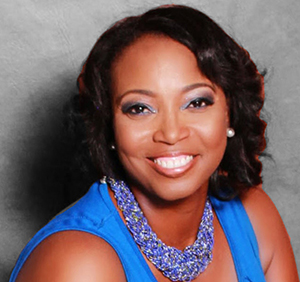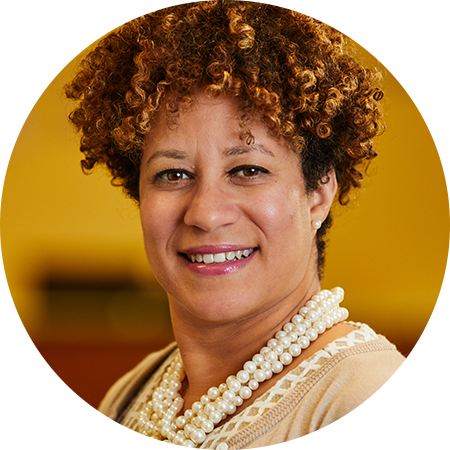Genetic Paternalism: Striking the Balance Between Expert Perspective and Patient Autonomy
Event Details
A constant tension that spans all areas of biomedical research and clinical practice is the question of how experts can act in the best interest of patients and research participants without assuming they know what is best for those individuals.
On March 15, 2021, NHGRI’s Policy and Program Analysis Branch hosted a panel discussion - Genetic Paternalism: Striking the Balance Between Expert Perspective and Patient Autonomy - exploring this tension at multiple levels in genomics research and medicine, from patient-provider interactions to research engagement with marginalized communities.
Online
Agenda
The panel discussion provided researchers and providers with strategies for thinking about their responsibilities with respect to their patients and ideas for engaging patients and participants in decision-making about their own health and data – both systematically and at an individual level.
An ethical framework for directiveness in genetic counseling practice
Leila Jamal, Sc.M., Ph.D., CGC
Associate Director for Cancer Genomics
Johns Hopkins/NIH Genetic Counseling Master’s Degree Program

Leila Jamal, Sc.M., Ph.D. is a certified genetic counselor and bioethicist with joint appointments to the National Cancer Institute and the NIH Clinical Center Department of Bioethics. Some of Dr. Jamal’s research interests include applying ethical principles to genetic counseling practice and how familial and individual interests in genetic information should be conceptualized and balanced. Dr. Jamal holds a master’s degree in genetic counseling from the Johns Hopkins School of Public Health and NHGRI and a Ph.D. in bioethics and health policy from Johns Hopkins. Her talk will describe how the genetic counseling community’s desire to avoid being seen as paternalistic has hampered counselors’ ability to help patients make sense of complex genetic information. She will lay out an ethical framework for when genetic counselors should give recommendations, and how such recommendations can take patients’ values into account to empower them and provide them with autonomy in a different way.
Sickle Cell Disease: A Marginalized Community in the Genomic Spotlight
Ashley Buscetta, F.N.P.-B.C., C.W.O.C.N.
Family Nurse Practitioner
NHGRI Health Disparities and Medical Genetics Branch

Ashley Buscetta is a Family Nurse Practitioner at NIH in NHGRI’s Health Disparities Unit, whose research focuses on equitable integration of precision medicine and genomic technologies into clinical settings, particularly the sickle cell disease community. Sickle cell disease (SCD) has received international attention as a frontline candidate for clinical application of gene therapies, including CRISPR genome editing. Still, the historical landscape of SCD is fraught with tensions related to disparities in research funding, advocacy, stigma and discrimination, and access to healthcare and therapeutics. The talk will cover ethically addressing needs of stakeholders whose lives will be impacted by these scientific endeavors. We will discuss the perceived barriers and facilitators to clinical trial enrollment, the meaning of informed consent, and last, conceptualize a framework of the values that should inform the way the biomedical enterprise interfaces with community stakeholders.
Patient perspectives: how social and historical contexts shape patients’ needs
Candace Henley
Founder, Blue Hat Foundation

Candace Henley is the founder of the Blue Hat Foundation, an organization dedicated to increasing awareness and education for colorectal cancer in minority and medically underserved communities. As an advocate, a person of color, and a survivor of cancer associated with Lynch Syndrome, Ms. Henley has multi-faceted experience with how communities of color perceive heritable disease and the risks associated with genetic testing and research participation. She will speak to how these communities’ past experiences with the biomedical enterprise have shaped patients’ current attitudes. Ms. Henley will also share what kinds of information and interactions members of these communities are looking for from providers and researchers
Moderator

- Branch Chief
- Education and Community Involvement Branch
Last updated: March 17, 2021
